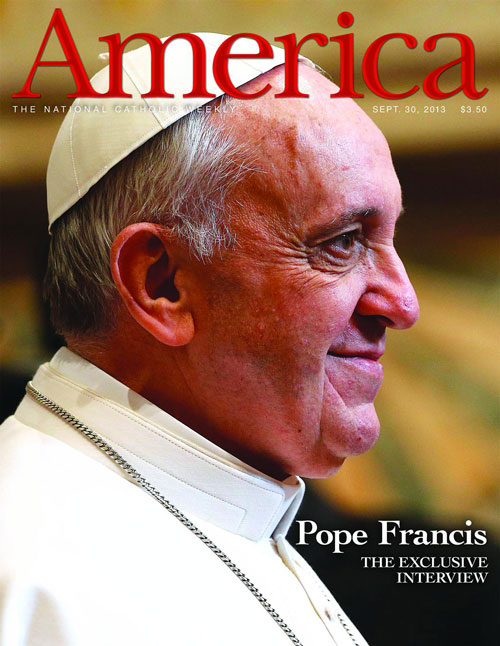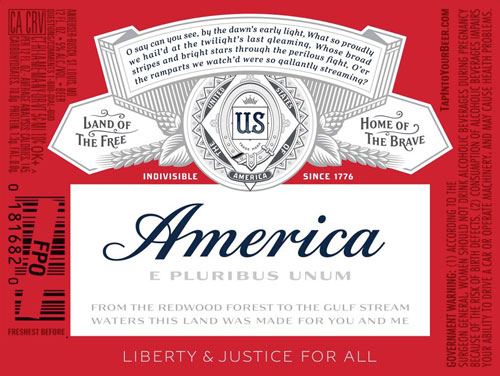America The Processed
One of the broadest possible geographic terms is, for now, the new name of Budweiser. Does Budweiser deserve "America," and if not, what does?
Editor's note: An earlier version of this post featured a history of American cheese. That has been expanded into its own post. I know you're psyched.
"It helped us immensely that there was confusion over whether our song was really a Neil Young song. Then there was the mystery about this group from England called America. What's that all about? We had a lot of mystique."
— Dewey Bunnell, one of the three founding members of the folk-rock act America, discussing how the band's name helped drive interest in the act. The band, known "A Horse With No Name," "Ventura Highway," and "Sister Golden Hair," had an unusual starting point—the band, made up of American military brats who grew up in the U.K., essentially picked its name to prevent confusion when gigging in British pubs. Basically, they sounded American because they were actually American. But, as highlighted above, the name simply created more confusion later on. America wasn't the first band to come up with the idea of naming themselves after the country (the United States of America, a wildly experimental band that had released a single album, beat them to it by a couple of years), nor were they the last (the Presidents of the United States of America had the right demeanor for their name).

Five things that had the nerve to call themselves "America"
- Since 1909, Jesuits have published a weekly newsmagazine called America, a fairly influential magazine that sometimes bucks the official stances of the Catholic Church.
- Comedian and currently bearded human being Jon Stewart's snarkily titled America (The Book), released in 2005, went for the gut punch: "If the presidency is the head of the American body politic, Congress is its gastrointestinal tract," he wrote at one juncture.
- On the other end of the political spectrum, conservative commentator Dinesh D'Souza's 2014 film America: Imagine the World Without Her attempted to make the case that the country's strong history was being threatened, but D'Souza instead found himself fighting with Google over the fact that he picked a title so broad that it was difficult to find showtimes for the film.
- In 2012, electronic musician Dan Deacon became only the latest tunesmith to name his album America. And like Stewart and D'Souza, his reason for doing so was basically political. "I’ve never had faith in government, but like it or not I’m in this system, and if I don’t actively try to do something about it, I’m part of the problem," he told journalist Greg Kot.
- There are a handful of towns that call themselves "America," most notably the ghost town of America, Oklahoma. A 2013 piece in 405 Magazine reveals that the town was not named for the country, but the founder's wife, who happens to be named America.
1,008
The number of miles that the airship America traveled during a failed attempt to cross the Atlantic Ocean in 1910. It was the third failed effort by journalist and explorer Walter Wellman to complete a bold journey using the early aircraft. Just a few years after the Wright Brothers had invented the airplane, Wellman got the crazy idea to fly an airship over the North Pole. He made two separate attempts to cross over with the airship, but failed both times.
If AB InBev were to actually register "America" as a trademark—something that legal experts don't think could actually happen—it wouldn't be the first time the "America" product mark has been registered, according to the U.S. Patent & Trade Office.
According to a search of the office's records, just 39 trademarks for the specific word exist, and most have been abandoned. One of the still-active ones is owned by Six Flags; another is owned by America magazine, the Jesuit publication I mentioned above.
But if you expand the search to basically include the word "America" as a single word in a longer phrase, suddenly the results grow to tens of thousands, with obscure brands like America's Socks and America's Favorite Flies, along with less-obscure ones like Hillary for America and, uh … "Make Amerikkka Great Again." (The latter was notable enough that it earned some news coverage this week.)
Mentioning such a broad topic like America makes people think of a lot of things, from politics, to art, to culture, and a million other things in-between. It is one of our most divisive words, in part because it means so much to so many—it brings together many, but for others, it's a symbol of unfulfilled promise.

Imagining one of the largest companies in the world trying to sell its most famous product as "America" invites some obvious cognitive dissonance.
Beer is great. I love beer. But is this specific beer worthy of being called "America"? I think not—it's too divisive, and raises too many questions for a country that can't even collectively decide whether to tie its shoes.
I argue that, when it comes to mass-produced items called "America," we save it for the cheese. Pretty much everyone can agree on that.
:format(jpeg)/2018/01/oet1twvuiej8i8ybyhjz--1-.gif)
/2018/01/oet1twvuiej8i8ybyhjz--1-.gif)

/uploads/ernie_crop.jpg)